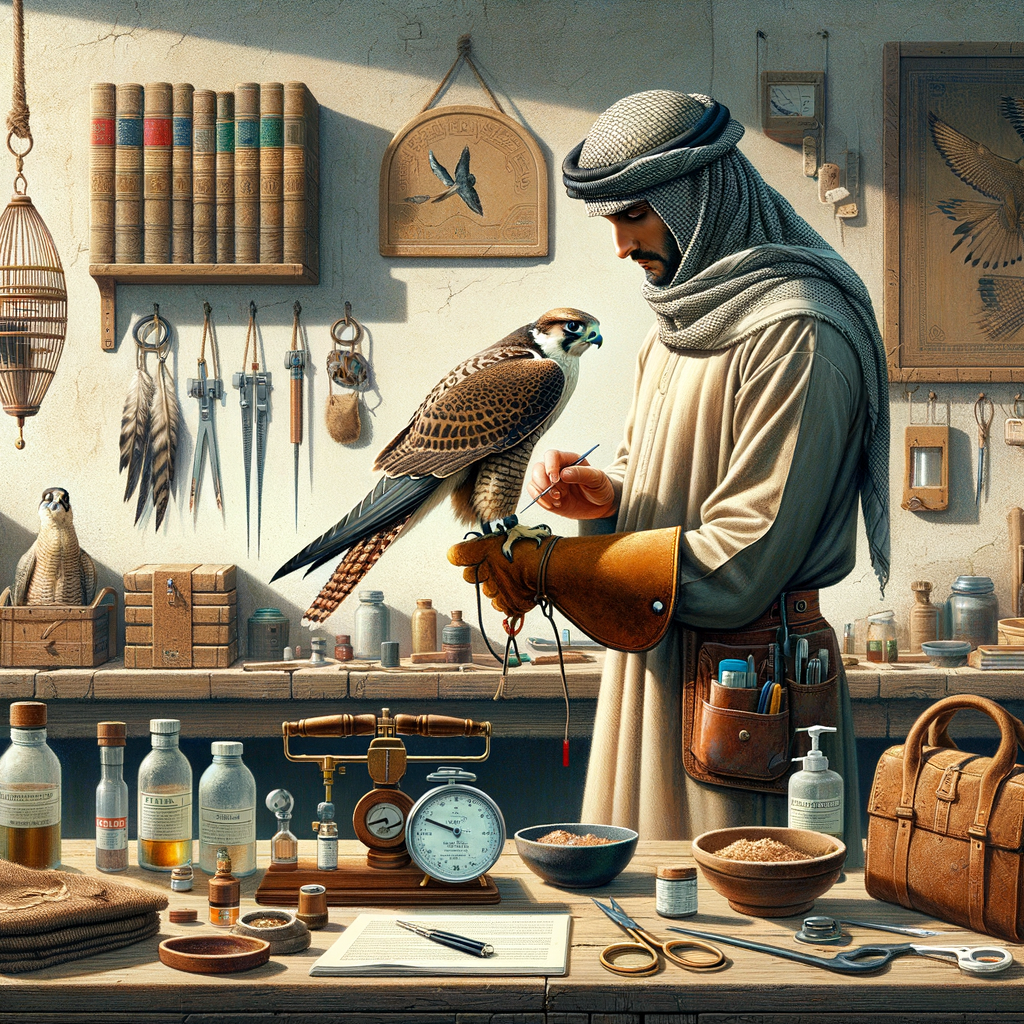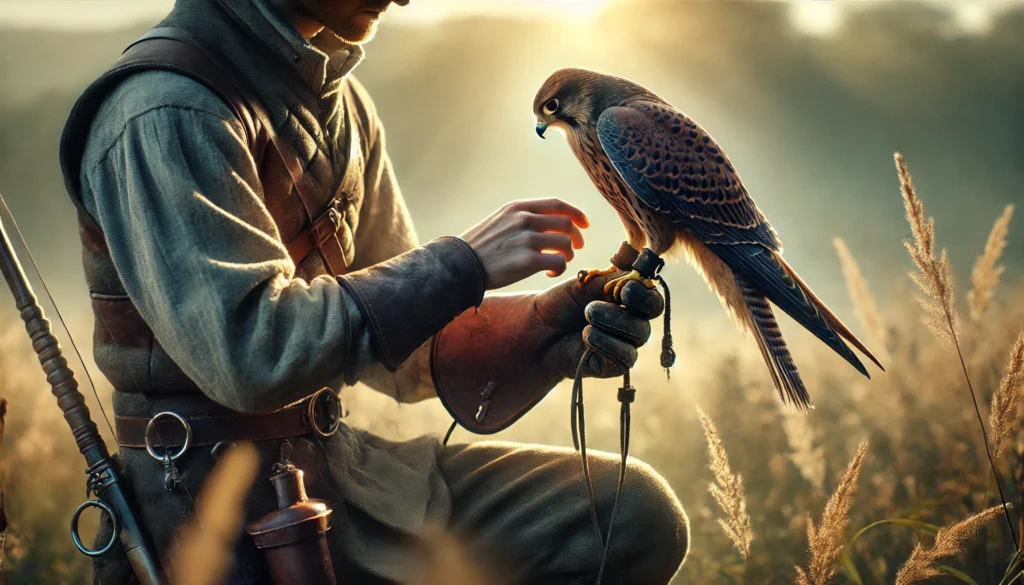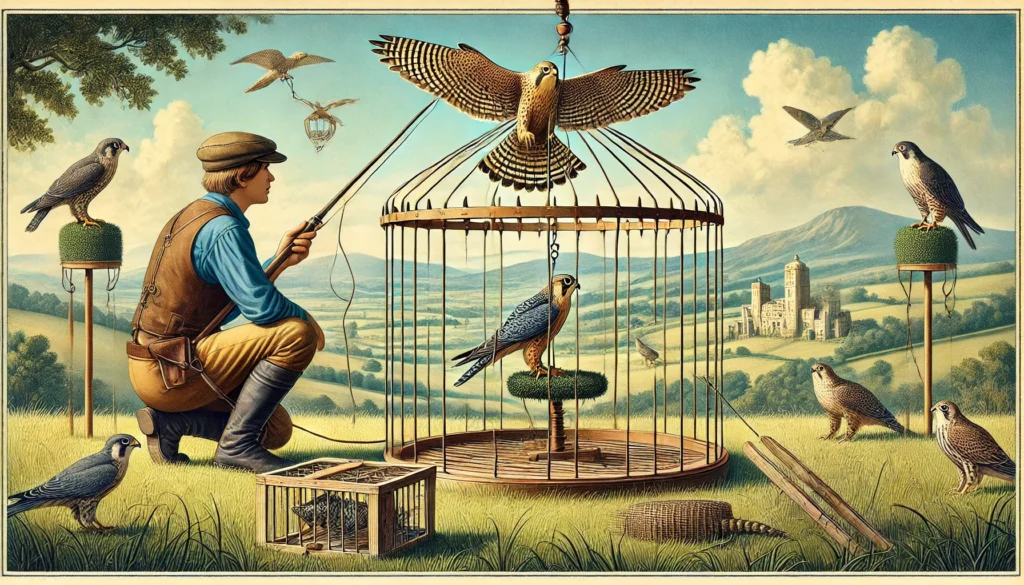Caring for a falcon is a rewarding yet challenging experience. As a new falconer, understanding the basics of falcon care is crucial for your bird’s health and well-being. This guide will introduce you to the fundamental aspects of looking after these magnificent raptors, from their diet to their housing needs.
Here are the key takeaway points for Beginners:
- Training: Falconry training is continuous, requiring patience and dedication.
- Health and Nutrition: Falcons need a balanced diet and regular health checks.
- Facilities: A suitable enclosure (mews) and weathering area are necessary.
- Legal Requirements: Falconry is often regulated, requiring exams and permits.
- Conservation: Many falconers are involved in raptor conservation efforts.
Falcon Care 101: Your Guide to Happy, Healthy Birds of Prey
Hey there, bird lovers and aspiring falconers! Ever wondered what it takes to care for these majestic sky hunters? Well, you’re in for a treat! We’re about to dive into the fascinating world of basic falcon care, and trust me, it’s way more exciting than you might think.
Imagine having a living, breathing piece of nature’s perfection perched right on your arm. Pretty cool, right? But here’s the thing: with great birds come great responsibilities. That’s why knowing the ins and outs of falcon care is absolutely crucial.
In this article, we’ll unpack everything you need to know to keep your feathered friend happy, healthy, and soaring high. From their dietary needs (spoiler alert: it’s not your average bird seed!) to creating the perfect home sweet home, we’ve got you covered.
But why should you keep reading? Well, for starters, proper falcon care isn’t just about keeping a pet – it’s about forging a unique bond with one of nature’s most impressive predators. Plus, the knowledge you’ll gain here could be the difference between a thriving falcon and a struggling one.
So, whether you’re a seasoned falconer looking to brush up on the basics or a wide-eyed newbie ready to embark on this thrilling journey, stick around. We promise you’ll walk away with a treasure trove of practical tips, fascinating facts, and maybe even a newfound appreciation for these incredible birds.
Ready to spread your wings and dive in? Let’s get started on your falcon care adventure!
Basic Falcon Care: A Comprehensive Guide
Caring for a falcon requires dedication, knowledge, and a deep understanding of these magnificent birds. Here’s what you need to know about basic falcon care:
Setting Up a Proper Living Space
Creating an appropriate living space for your falcon is crucial. A well-designed mews (falcon housing) should:
- Be spacious enough for the falcon to spread its wings
- Have proper ventilation and natural light
- Include perches of various sizes and materials
- Be secure to prevent escapes and protect from predators
For more details on falcon housing, check out our guide to mews and housing.
Daily Care Routines
Establishing a consistent daily routine is essential for your falcon’s well-being:
- Feeding: Provide a balanced diet of fresh, high-quality meat. The type and amount depend on the falcon’s species, size, and activity level.
- Watering: Ensure clean, fresh water is always available for drinking and bathing.
- Exercise: Regular flying and training sessions are crucial for maintaining physical and mental health.
- Health checks: Perform daily visual inspections of your falcon’s overall condition.
- Cleaning: Keep the mews clean and hygienic to prevent disease.
For more in-depth information on falcon nutrition and health, visit our falcon health and nutrition page.
Recognizing Signs of Illness
Early detection of health issues is vital. Watch for these signs of illness in falcons:
- Changes in appetite or weight
- Abnormal droppings
- Fluffed-up feathers or unusual posture
- Discharge from eyes or nostrils
- Breathing difficulties
- Behavioral changes
If you notice any of these symptoms, consult a veterinarian experienced in raptor care immediately. Learn more about common falcon health issues.
Preventative Health Care
Implement these preventative measures to maintain your falcon’s health:
- Regular veterinary check-ups
- Proper parasite control
- Maintaining a clean environment
- Providing a balanced diet
- Ensuring proper exercise and mental stimulation
For more information on preventative care, check out our guide on preventative health care for falcons.
Training and Bonding
Building a strong bond with your falcon through proper training is essential for successful falconry:
- Start with basic manning techniques
- Use positive reinforcement methods
- Gradually progress to more advanced training
Learn more about training techniques in our basic training tips for beginners guide.
Remember, falconry is a regulated activity in many countries. Ensure you comply with all legal requirements before acquiring a falcon.
By following these basic care guidelines and continuously educating yourself, you’ll be well on your way to providing excellent care for your falcon. For more in-depth information on various aspects of falconry, explore our other articles and resources on Learn Falconry.
Caring for a falcon is a rewarding but demanding responsibility.
Remember these key points:
- Daily health checks are crucial
- Proper diet and hydration are essential
- Regular exercise keeps your falcon fit and happy
- A clean environment prevents diseases
- Building trust through positive reinforcement is vital
Falconry is an ancient art that requires dedication, patience, and continuous learning. By providing attentive care and meeting your falcon’s needs, you’ll forge a unique bond with these magnificent birds of prey. As you embark on this journey, always prioritize your falcon’s well-being and seek guidance from experienced falconers when needed. With proper care and respect, you’ll experience the thrill of working alongside nature’s aerial masters.
- What are the basic nutritional requirements for falcons?
- How often should I feed my falcon?



